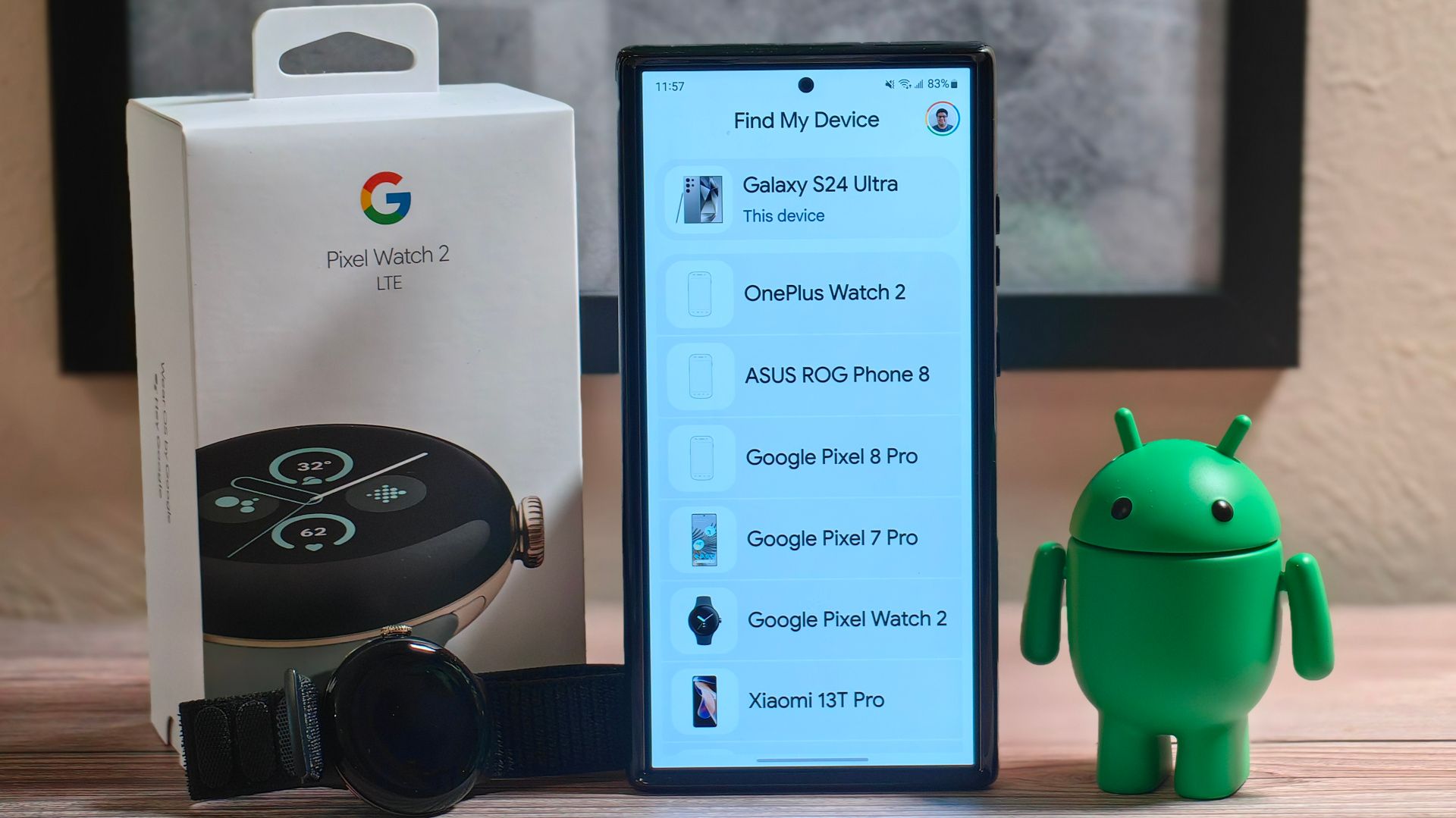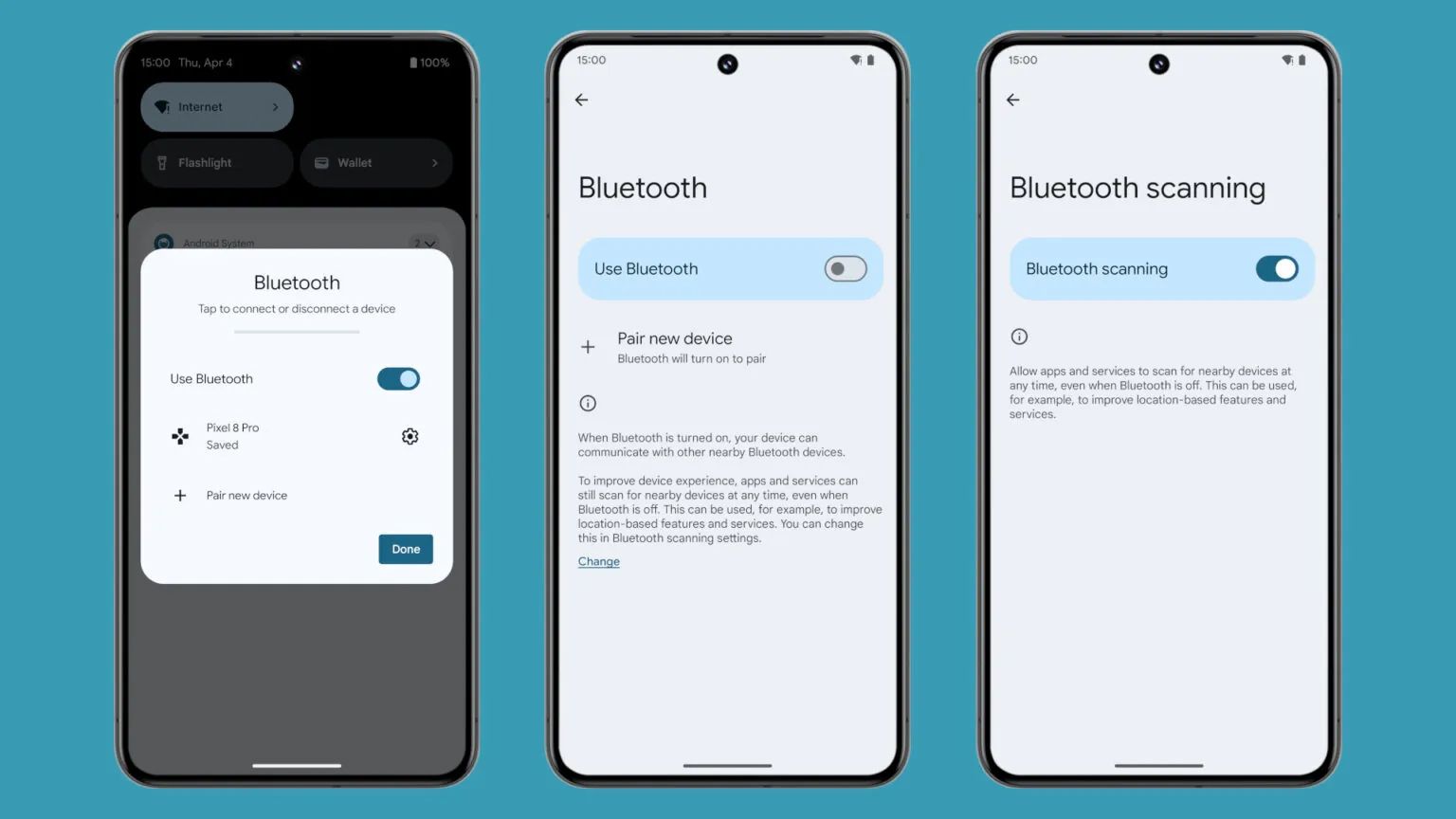Summary
- The Find My app on iOS helps track lost or stolen devices, even when they’re offline. Google is adding a similar feature for Android soon.
- Google’s upcoming Find My Device network relies on Bluetooth signals to locate devices, so it requires Bluetooth to be on.
- Strings of code discovered in Android 15 suggest that, upon turning off Bluetooth, the system may automatically re-enable it after a period of time to support this feature. There will still likely be a way to disable this auto-on feature.
Find My iPhone — or more specifically, the Find My app — is one of the most practical features you can find on iOS. It helps users to track the location of their lost or stolen Apple devices, even when they’re offline or powered down. While Apple didn’t add most of these features until six years after Google launched its Find My Device app in 2013, Google’s version has been far more basic since then, having held off on adding the ability to find phones without an active internet connection until recently.

Google has flipped the switch on its Find My Device network for some users
Settings for the offline finding feature are live for some, but it’s probably not functional yet
As we reported earlier, Google is finally gearing up to add the Find My Device network for Android in the coming days. The feature will rely on Bluetooth signals from potentially billions of Android devices to trace a device or an accessory even when it’s offline. But there is a catch here. As reported by Android expert Mishaal Rahman for Android Authority, Android 15 will automatically enable a device’s Bluetooth to help make it visible to Google’s Find My Device network.
While Google has remained tight-lipped about how its upcoming Find My Device network functions, a dig into preview builds of Android 15 revealed some clues to a “Bluetooth auto-on” feature. Once a user tries to turn off Bluetooth via Android’s Quick Settings, a new toggle appears, likely in Bluetooth Settings, that causes the feature to “Automatically turn on again tomorrow.” This is accompanied by an informative label stating that “Features like Quick Share, Find My Device, and device location use Bluetooth.”
Google’s Find My Device network needs Bluetooth signals to track a device
Bluetooth is necessary for the Find My Device network on Android to track a device. However, users should still be able to turn off their device’s Bluetooth and ignore the Bluetooth auto-on toggle. In that case, the phone won’t help track lost or stolen Android devices in the new network, but it helps to extend battery life. Another informative string discovered in the Android 15 beta explains that, as always, apps can still scan for nearby devices, even with Bluetooth off.
When Bluetooth is on, your device can communicate with other nearby Bluetooth devices. Features like Quick Share, Find My Device, and device location use Bluetooth. Apps and services can still scan for nearby devices at any time, even when Bluetooth is off. This can be used, for example, to improve location-based features and services. You can change this in Bluetooth scanning settings.
Code in the Android Open Source Project (AOSP) also gives us more details about Google’s Find My Device network. The feature is expected to launch in earnest with Android 15 but might also be available on older versions, as the API isn’t restricted to Android 15. Additionally, third-party apps can’t trigger your device’s Bluetooth as the feature is limited to system apps. The bad news is a device must use the AOSP’s Bluetooth stack to get the Bluetooth auto-on, and the feature might not find its way to all Android devices.
As smartphone theft continues to rise, it’s wise to sacrifice some percentage of your phone’s battery to enable this new functionality. After all, the upgraded Find My Device network relies on other phones to locate a stolen one that went offline, so if everybody chips in a couple of milliampere-hours for the cause, we all stand to gain from it.





